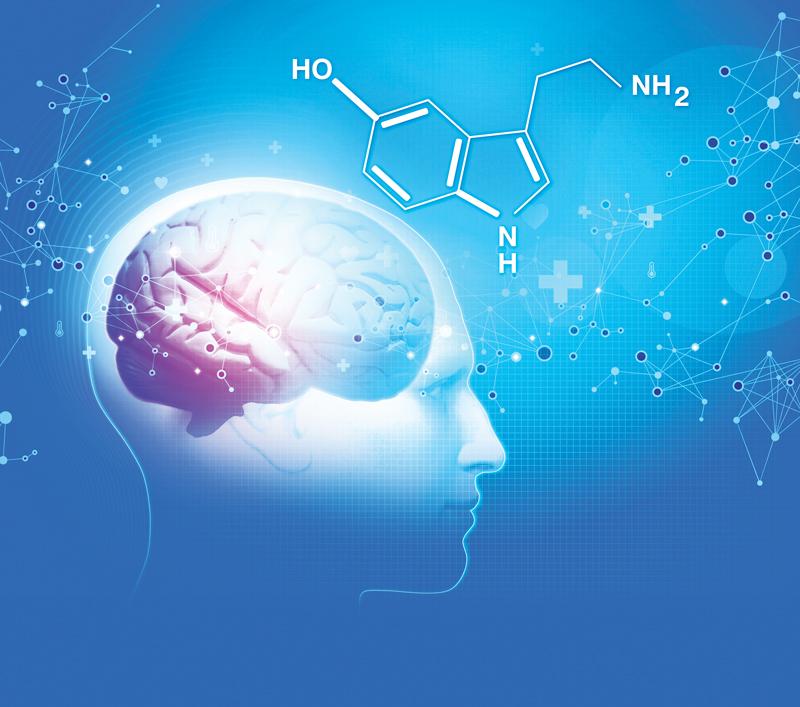Understanding Serotonin: The Multifaceted Neurotransmitter

Serotonin is a vital neurotransmitter that plays a critical role in regulating various physiological and psychological functions in the human body. Below, we’ll delve into its functions, effects, and the complexities surrounding this essential compound.
What Does Serotonin Do in Our Bodies?
Serotonin is primarily found in the brain, intestines, and blood platelets. It acts as a neurotransmitter, facilitating communication between nerve cells. Its influence extends to several bodily functions, including:
- Mood Regulation: Serotonin is known to influence mood, promoting feelings of well-being and happiness.
- Sleep: It helps regulate the sleep-wake cycle, affecting sleep quality and patterns.
- Appetite: Serotonin plays a role in controlling appetite, helping to signal feelings of fullness.
- Digestive Functions: The majority of the body's serotonin is located in the gut, where it helps regulate bowel movements and function.
- Cognitive Functions: It is involved in memory and learning processes.
Is Serotonin the Happy Hormone?
While serotonin is often referred to as the "happy hormone," this terminology can be misleading. Serotonin does contribute to feelings of happiness and well-being, but it’s not the sole factor in happiness. Emotional states are influenced by a complex interplay of neurotransmitters, hormones, environmental factors, and individual experiences. Low levels of serotonin have been associated with mood disorders, including depression, but its role is part of a broader system of emotional regulation.
How Does Serotonin Affect Anxiety?
Serotonin’s relationship with anxiety is complex. Low levels of serotonin are often linked to increased anxiety and mood disorders. Serotonin helps modulate anxiety by inhibiting excessive neural activity in certain brain regions, particularly those involved in the stress response.
Conversely, some treatments for anxiety, like selective serotonin reuptake inhibitors (SSRIs), work by increasing serotonin levels in the brain, which can lead to a reduction in anxiety symptoms for many individuals. However, individual responses can vary, and not everyone may benefit from these treatments.
What Are the Three Functions of Serotonin?
- Mood Regulation: As discussed, serotonin plays a crucial role in stabilizing mood and is implicated in feelings of happiness and well-being.
- Gastrointestinal Function: Serotonin regulates bowel movements and digestive processes, influencing peristalsis and overall gut health.
- Sleep Regulation: It is involved in the sleep cycle, particularly in melatonin production, which regulates sleep patterns.
Can Too Much Serotonin Cause Depression?
Interestingly, while low serotonin levels are commonly associated with depression, the idea that too much serotonin can cause depression relates more to a phenomenon called serotonin syndrome. This condition occurs when there is an excessive accumulation of serotonin, often due to certain medications or drug interactions. Symptoms can include agitation, confusion, rapid heart rate, and in severe cases, it can be life-threatening.
Chronic overstimulation of serotonin receptors could potentially lead to mood disturbances, but this is a complex area of study and not fully understood. Overall, balance is crucial when it comes to serotonin levels.
How Does Serotonin Affect Energy?
Serotonin indirectly influences energy levels. It regulates sleep, which is vital for overall energy. A balanced serotonin level promotes restful sleep, leading to improved energy levels during waking hours. Additionally, serotonin influences motivation and can impact how energetic or driven someone feels throughout the day. Low serotonin levels may lead to fatigue and a lack of motivation.
What Drains Serotonin?
Several factors can contribute to decreased serotonin levels:
- Poor Diet: Diets low in tryptophan (an amino acid precursor to serotonin) can affect serotonin production. Foods rich in carbohydrates can help increase serotonin levels.
- Stress: Chronic stress can deplete serotonin levels and disrupt its function.
- Lack of Sunlight: Exposure to sunlight is known to boost serotonin levels; insufficient sunlight can lead to reduced levels, potentially affecting mood.
- Sedentary Lifestyle: Regular physical activity can enhance serotonin levels, while inactivity can contribute to lower levels.
- Certain Medications: Some medications and substances can interfere with serotonin production and function.
Conclusion
Serotonin is a crucial neurotransmitter that impacts many aspects of physical and mental health. Understanding its functions and the factors that influence its levels can provide insights into mood regulation, anxiety management, and overall well-being. As research continues, the complexities of serotonin will likely reveal even more about its role in our bodies and lives.
Post Your Ad Here
Comments